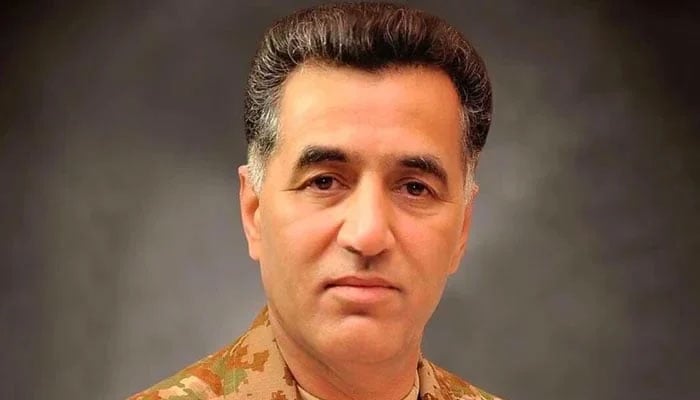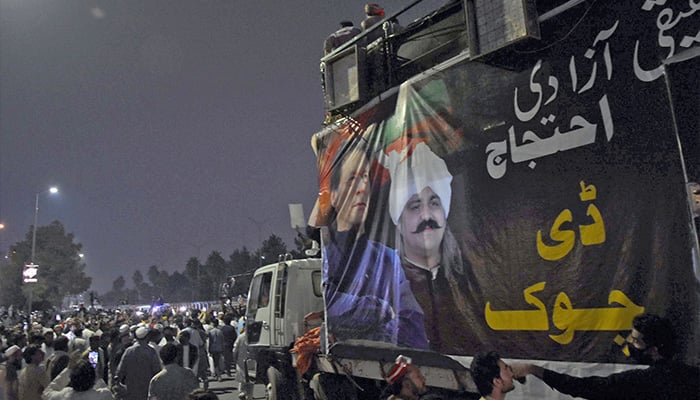Barrister Ali Khan
The ongoing field general court-martial (FGCM) proceedings against former Inter-Services Intelligence (ISI) chief, Lieutenant General (r) Faiz Hamid, mark a pivotal moment in Pakistan’s history, particularly in terms of institutional accountability. With the Pakistan Army Act undergirding the charges, Faiz Hamid is accused of multiple serious offenses, including engaging in political activities, violating the Official Secrets Act, misusing his authority, and causing harm to individuals. Furthermore, his involvement in the May 9, 2023, unrest, which led to widespread violence, is also being scrutinized. As these proceedings unfold, they carry significant implications, not just for Faiz Hamid, but also for Pakistan’s institutions and its approach to accountability, particularly in the context of military and political power dynamics.
The legal journey of Faiz Hamid began with his arrest in August 2023, following a petition filed by the CEO of a housing society, accusing him of land grabbing and theft during a raid. However, the scope of his trial has expanded well beyond this initial charge. Over the years, speculation about his political involvement, especially his alleged links to Imran Khan and the Pakistan Tehreek-e-Insaf (PTI) party, has been a hotly debated topic. His tenure as ISI chief was clouded by accusations of political interference, with many questioning whether his actions were designed to influence political outcomes.
Imran Khan’s response to Faiz Hamid’s arrest has been one of swift disavowal. The PTI chairman immediately distanced himself from the general, claiming that they were not connected. In an attempt to limit political fallout, PTI Barrister Gohar referred to the charges as an “internal military matter” and sought to disassociate the party from the general’s actions. However, this disavowal has been met with skepticism, particularly within the PTI itself. Internal discord within the party has emerged, with figures like Sher Afzal Marwat suggesting that Faiz Hamid did not benefit PTI. This contradiction within the PTI’s own ranks signals a deepening rift over their past associations with the former intelligence chief.
This growing division within PTI is significant because it suggests that the party’s relationship with Faiz Hamid may have been more complex than initially assumed. Analysts have pointed out that, during his tenure, Faiz Hamid’s efforts likely benefited PTI’s political goals. By orchestrating covert operations and strategically positioning key figures, he may have indirectly aided Imran Khan’s rise to power. This has led many to speculate that his arrest and trial are not just about one individual, but rather a wider reckoning over the military’s role in shaping Pakistan’s political landscape.
The charge sheet issued by the Inter-Services Public Relations (ISPR) includes the May 9, 2023, incidents, suggesting that Faiz Hamid’s alleged actions may have extended beyond typical intelligence duties. The inclusion of these events emphasizes the gravity of the charges against him, particularly the possibility that the general may have been involved in stoking unrest within the military and encouraging dissension. The trial’s outcome could have profound consequences not only for Faiz Hamid but also for Imran Khan and PTI, especially if evidence emerges linking the party to military actions during the unrest.
However, it is crucial that this trial be conducted with full adherence to due process and without prejudice. The legal principle of “innocent until proven guilty” must prevail, and the trial should not be used as a political tool. The evidence must be conclusive and beyond reproach to ensure that justice is served fairly and impartially.
At a broader level, Faiz Hamid’s trial underscores the urgent need for robust institutional accountability in Pakistan. Throughout his career, the general was dogged by allegations of political meddling and the misuse of his office. Even after retirement, rumors persisted about his involvement in political maneuverings. Such behavior not only compromises the integrity of state institutions but also sets a dangerous precedent for future military officers. When individuals in positions of power abuse their authority for political gain, they erode the very foundations of governance and rule of law. Pakistan cannot afford to allow such practices to continue, as they undermine public trust in institutions and perpetuate cycles of corruption and dysfunction.
This trial is not simply about Faiz Hamid; it is a crucial moment for Pakistan to demonstrate its commitment to the rule of law. The Supreme Court Bar Association (SCBA) has lauded the FGCM proceedings, calling them a “significant step towards institutional introspection.” The SCBA’s endorsement reflects the broader belief that no one, regardless of their rank or influence, should be above the law. The case is seen as a litmus test for the country’s resolve to hold its institutions accountable, even when powerful figures are involved.
Institutional integrity requires that accountability be impartial and comprehensive, targeting anyone who misuses their position for personal or political gain. The public must see that no individual is immune to scrutiny or legal action, regardless of their political affiliations or the power they wield. In the past, figures within Pakistan’s political and military elite have enjoyed what some describe as “sacred cow” status—protected from the consequences of their actions by their position or influence. This perception of untouchability has allowed corruption and abuse of power to flourish unchecked.
If Pakistan is to move forward as a modern, democratic state, it must foster a culture of transparency and fairness. Faiz Hamid’s trial, for all its contentious aspects, presents an opportunity to prove that no one is beyond accountability. This will require political will and a commitment to due process, but it also demands that the military and other state institutions accept the principle of institutional introspection. As the trial unfolds, Pakistan must prove that it is serious about eradicating corruption, promoting good governance, and ensuring that its leaders—military or civilian—are held to the highest standards of integrity.
The road ahead will not be easy. The fallout from this case, particularly if it implicates high-ranking political figures, could further polarize Pakistan’s already fractured political landscape. Yet, the potential for positive change is undeniable. A fair and transparent trial of Faiz Hamid could serve as a powerful message that Pakistan is committed to justice, no matter how high up the chain of command the accused may be.
In the end, the trial of Faiz Hamid is more than a legal proceeding; it is a defining moment for Pakistan. It will shape the future of institutional accountability in the country, and the world will be watching closely to see whether the nation can rise to the occasion and uphold the principles of justice and fairness. The message must be clear: no one is above the law, and accountability is essential to a healthy, functioning democracy.
















































